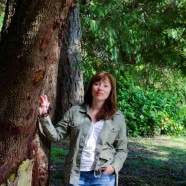
The next time you congratulate yourself for a long run or thank your parents for your hardy genes, be sure to acknowledge your neighborhood’s role in keeping you well.
When it comes to your health, your ZIP code may trump your genes, according to the Harvard School of Public Health. And the disparities among ZIP codes and races are startling: in New Orleans, people in a higher-income neighborhood live, on average, 25 years longer than in a lower-income area, according to the Robert Wood Johnson Foundation. These disparities hold true in many health issues: cancer, heart disease, high blood pressure, and HIV.
Groups like the American Public Health Association and others are taking notice and working toward health equity: overcoming population (group)-level disparities in health and wellness impacted by factors like race and income. We don’t always realize it, but our communities impact our wellness choices. Are our neighborhoods clean and safe enough to take an evening walk? Do we have access to health services and specialists? How hard is it to afford and find nutritious food? How many marijuana and tobacco shops do our kids see every day?
“There’s an old saying that it’s easier to buy a gun in some neighborhoods than it is to buy a fresh tomato,” said Val Thomas-Matson, program manager for the Healthy King County Coalition, a community-based organization in Seattle that works toward health equity. The HKCC includes members such as WSU’s Food $ense, the Seattle Indian Health Board, Entre Hermanos, FEEST Seattle, the Trust for Public Land, and the Center for MultiCultural Health—agencies that see health disparities firsthand.
The coalition takes the idea of “community based” very, very seriously. “The community drives the dialogue upward. They tell us what they and their neighborhoods are struggling with. We then work with our partners and other members to help,” said Thomas-Matson.
For example, some folks in South Seattle communities are troubled by the increasing numbers of youth using e-cigarettes. While many people believe e-cigarettes to be safe, new research shows the risks and harm caused by the chemicals in the vapor—and the danger of addicting young brains to nicotine. So HKCC members created an e-cigarette billboard and web campaign called “Don’t Be Fooled.” Billboards are up in several South Seattle and South King County neighborhoods.
The HKCC has also held healthy cooking classes in South Seattle and given away kitchen tools like blenders to families who need them. Each year, the coalition trains still more boots-on-the-ground leaders to help shape healthy communities. The coalition also hosts educational summits, arranges forums to connect equity advocates to lawmakers, and offers free training in understanding data and telling stories to create social change. Support for programs like Fresh Bucks (a program that matches Seattle farmers’ markets SNAP purchases dollar-for-dollar), Best Starts for Kids, and Breakfast After the Bell are also key ways the coalition fights disparities.
“These programs help offset the additional harm that falls on people of color and people with lower incomes,” explained Thomas-Matson. “From tobacco marketing to marijuana dispensaries to fast-food restaurants, some environments make it harder for many groups to make healthy choices. We empower people to change that.”
The Coalition is currently partnering with Seattle Children’s and Public Health - Seattle & King County on a Partnerships to Improve Community Health (PICH) federal grant. For more information on this work, visit http://www.kingcounty.gov/healthservices/health/about/healthycommunities.aspx. To learn more about the Healthy King County Coalition, visit www.healthykingcounty.org. For more information about health equity, visit the CDC, http://www.cdc.gov/chronicdisease/healthequity/.
JoAnne Dyer is a professional freelance writer who covers news nationally and locally in the Puget Sound Region.









